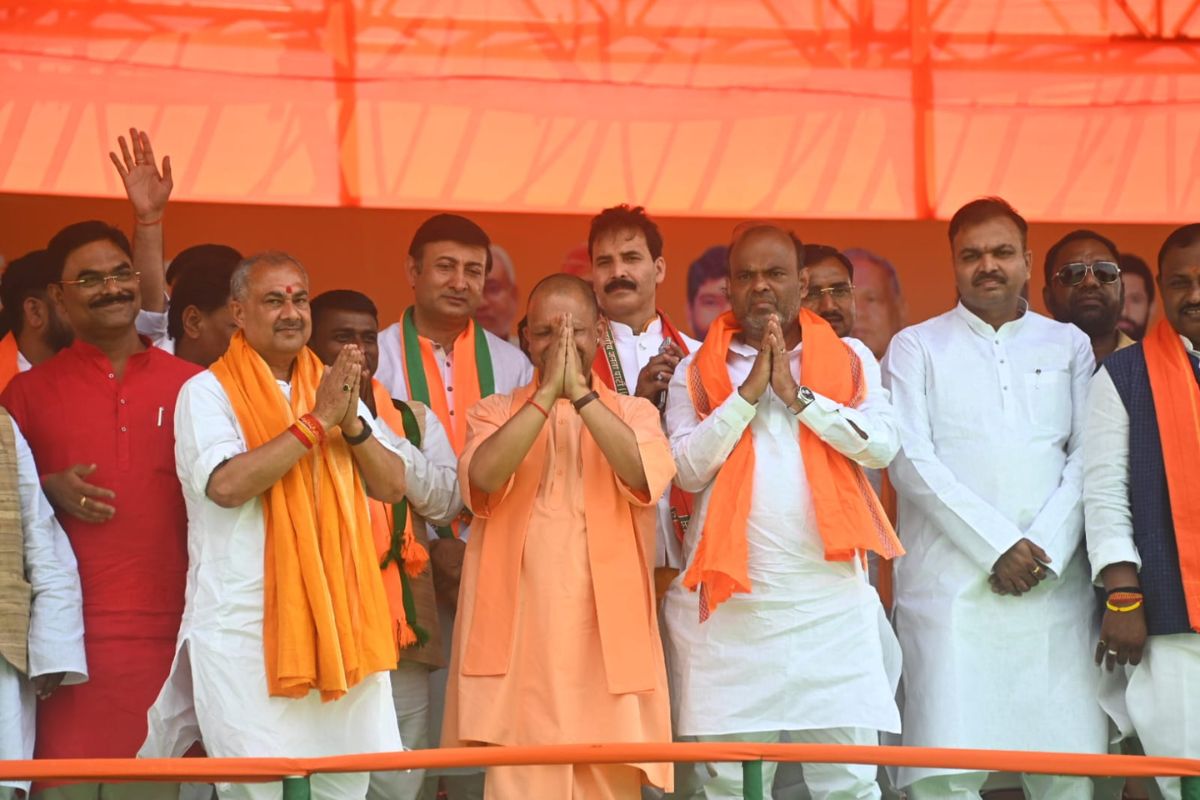BJP to hold fast and prayer meet ahead of counting day in Arunachal
The Longding-Pumao constituency will host the fasting and prayer programme on June 1, party sources said.
As Uttar Pradesh braces for yet another phase in the election cycle, the dynamics of law and order loom large over the political landscape, with both the Bharatiya Janata Party (BJP) and the Samajwadi Party (SP) vying for electoral advantage.

File Photo; UP CM Yogi Adityanath in Aurangabad
As Uttar Pradesh braces for yet another phase in the election cycle, the dynamics of law and order loom large over the political landscape, with both the Bharatiya Janata Party (BJP) and the Samajwadi Party (SP) vying for electoral advantage. The narratives emerging from the heartland state paint a complex picture of governance and its implications on the electoral calculus. There is a palpable sense of relief among many voters who believe that stringent law enforcement measures by the state’s BJP government have ushered in an era of stability and security. For them, the crackdown on crime represents a tangible improvement in their daily lives, where they can go about their work or business without the looming spectre of lawlessness. However, it is essential to tread carefully when analysing the narrative surrounding law and order.
While the purported reduction in crime is undoubtedly a welcome development, questions arise regarding the impartiality and inclusivity of these measures. The perception that certain communities are disproportionately targeted or marginalised under the guise of maintaining law and order raises concerns about the nature of governance and justice. In the realm of electoral politics, the issue of law and order becomes a double-edged sword for political parties vying for power. On one hand, the BJP, which champions a toughon-crime stance, may attract voters who prioritise security and stability above all else. The promise of a safer society resonates strongly with segments of the electorate who have borne the brunt of rampant crime in the past.
On the other hand, the SP may seek to highlight issues of justice and equity, emphasising the need for fair and impartial law enforcement measures. In a diverse and pluralistic society like Uttar Pradesh, where communal tensions often simmer beneath the surface, the need for impartial governance becomes paramount. As the election unfolds, it is imperative for political leaders from both parties to strike a delicate balance between maintaining law and order and upholding the principles of justice and inclusivity. Parties that can navigate these complexities with nuance and sensitivity are likely to resonate more strongly with voters who value both security and equity. Ultimately, the electoral fortunes of parties will hinge not only on their ability to tout achievements in law enforcement but also on their commitment to fostering a society where every citizen feels safe, valued, and empowered. In the quest for power, let us not forget the fundamental principles of justice and fairness that underpin a thriving democracy.
Advertisement
In this electoral context, it is crucial for voters to critically assess the rhetoric and actions of political parties regarding law and order. Beyond the surface-level promises of security, citizens must evaluate the long-term implications of policies on communal harmony and social cohesion. By engaging in informed discourse and holding leaders accountable for their governance, voters can contribute to a more robust and inclusive democratic process.
Advertisement